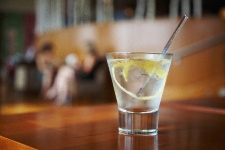 A new health breakthrough shows that mixing alcohol with a diet soft drink can result in a higher breath alcohol concentration than when alcohol is mixed with regular or sugar-sweetened drinks. People are largely unaware of this, but we need to know.
A new health breakthrough shows that mixing alcohol with a diet soft drink can result in a higher breath alcohol concentration than when alcohol is mixed with regular or sugar-sweetened drinks. People are largely unaware of this, but we need to know.
Breath alcohol concentration (BrAC) is influenced by several factors, including food. Eating food helps reduce BrAC, but mixing alcohol with diet soft drinks has just now been found to lead to a higher BrAC. This is important to know for people attempting to watch the amount they are drinking and those intending to drive home. Alcohol impairs judgment, and you might be more affected than you believe.
Research on artificially sweetened drink mixers is quite new, but they all point to the same conclusions. A simple choice of mixer could be the factor that puts a person above or below the legal limit to drive, for instance. Researchers here wanted to see if people noticed BrAC differences.
PLUS: Is resveratrol no good for women?
In three sessions, 16 people received one of three doses—1.97 mL/kg vodka mixed with 3.94 mL/kg Squirt, 1.97 mL/kg vodka mixed with 3.94 mL/kg diet Squirt, and a placebo beverage—in random order. The participants’ BrACs were recorded, and they rated their own intoxication, fatigue, impairment, and willingness to drive.
They saw that alcohol and the diet mixer led to higher BrACs. People were unaware of this difference, though their impairment was worse because of it.
Why does this happen? The stomach seems to treat sugar-sweetened beverages like food, which delays the stomach from emptying. But drinks without sugar don’t fool the stomach, and the body absorbs alcohol unimpeded.
Weight loss is a big thing these days, and people are conscious about calories. As such, they might think that mixing alcohol with diet drinks is a healthy choice. Sure, that may be the case, but they should also know that the alcohol concentration on their breath is higher—and poses a bigger health risk than a few extra calories.
If you or anyone you know fancies a diet gin-and-tonic or a Jack-and-Diet-Coke, keep this in mind.
Sources for Today’s Articles:
Alcohol and Diet Drinks: A Potentially Toxic Combo
“Alcohol + diet drinks may increase intoxication more than alcohol + regular drinks,” Alcoholism: Clinical & Experimental Research February 5, 2013.
